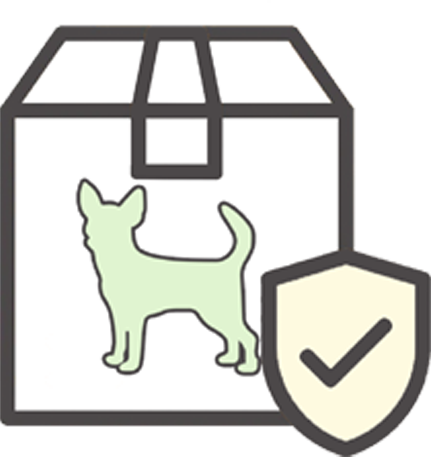All About Fleas: What They Are and How To Prevent Them
Monday, October 22, 2018 04:23:35 PM America/Los_Angeles
You finally decided to adopt a puppy. Over the last few weeks, the dog has adjusted, and potty training is going okay. However, you notice that the dog is itchy and it is scratching a lot. It is what you feared, fleas! Fleas are present in the environment, and your dog can quickly pick them up as you take him for a walk outside. While there is no cure for fleas, the best treatment is always prevention. Below is an article to help you understand how to prevent dogs from getting fleas.
What are fleas and what do they do?
Fleas are tiny, irritating parasites that need the blood of their host to survive. They reproduce very quickly both in the house and outside in that fresh grass your dog likes to roll around on. They do not have wings, but they move from one location to the other by jumping.
If your dog has fleas, they will leave tiny red raised dots on the skin of the dog, but the bite is much smaller than most other insects. If your dog has fleas, you will notice that the dog is severally scratching and itching, chewing or biting on its skin, scabs and red, irritated skin. The problem with identifying fleas is that it is not easy to notice the bites on the dog because of the fur. However, you can look out for the other symptoms.

Where can the dog get fleas from?
The most likely way that your dog can get fleas is through contact with other animals. Fleas easily jump from one carrier to your dog and start a colony. Animals that are likely to transfer fleas to your dog include cats, birds, ferrets, raccoons, rabbits, squirrels, and opossum among others. If you have a house cat chances are it can transfer the fleas to your dog. Mice can also bring fleas into your home and transfer them to your dog.
Your dog can get fleas from dog facilities such as doggie daycare where all the dogs use the same potty pads. It is crucial that you choose dog facilities wisely. You should always ask the daycare to inform you if they know of any of the dogs having fleas. This way, you can keep your dog at home for the day. Just give them a DoggieLawn to go potty on when you're away at work!
Flea prevention
One of the most frightening things about fleas is the rate at which they multiply. A female flea after her first blood meal she is able to produce eggs after 24 to 48 hours. Every day she can produce up to 50 eggs a day. And get this, in one female’s lifetime, she can produce up to 200 eggs. The rate at which they multiply makes treatment and prevention. However, all hope is not lost. There are some effective preventative measures that you can take, but first, you have to treat your dog if they have fleas.
• Flea shampoo – giving your dog a bath using flea shampoo should be the first attack at adult fleas on the dog. However, the flea shampoo only works for a day or two because it leaves traces of chemicals that keep the fleas away.
• Flea dips – flea dips can be described are strong chemical rinses that help in get rid of fleas and other parasites such as mites and ticks from the dog. Dips last for about two weeks making it more effective than flea shampoo.
• Flea powder and sprays – the flea sprays and powders are effective only for adult fleas. Their protection can last two to three days.
• Flea pills – once the dog takes the pill, the flea sucks on its blood and when the female flea lays her eggs, they do not hatch. Hence breaking the flea life cycle but they do not kill the adult fleas.
Once you have treated the fleas on your dog which are only about 10% of the entire population, you need to control the fleas in your house and in your yard which account for the other 90%. They include the flea eggs, larvae, pupa and a few adult fleas that might be hiding in the house carpeting, bedding, fake grass and potty pads. To completely get rid of the fleas in your home you will need a coordinated attack that includes the following measures;
• Daily vacuuming – the importance of vacuuming on a daily basis cannot be under stated. By vacuuming on a daily basis, you help to get rid of pupae, eggs, and larvae before they can develop into grown fleas. After vacuuming ensure that you dispose of the bag properly to avoid a re-infestation. Ensure you vacuum any surfaces that the dog comes into contact with.
• Regularly wash your beddings, clothes and other removable furniture covers. It is recommended that you do this at least once a week.
• Use pesticides in your home, not just on the inside but also on the outside. Use the pesticide according to the manufacturer’s instructions. You can also opt to hire a professional exterminator.
Is one treatment better than the other?
While the treatments are not equal, there are those that offer protection for longer than others as indicated above. However, you should use one treatment at a go. But for flea pills, you can use another treatment that can take care of the adult larvae. Remember, with fleas prevention is always better.

